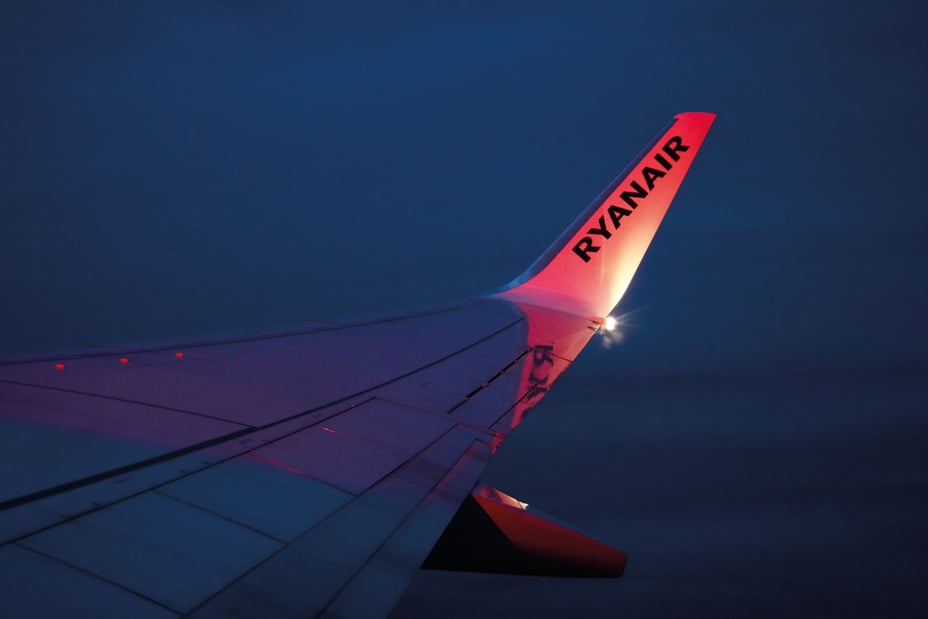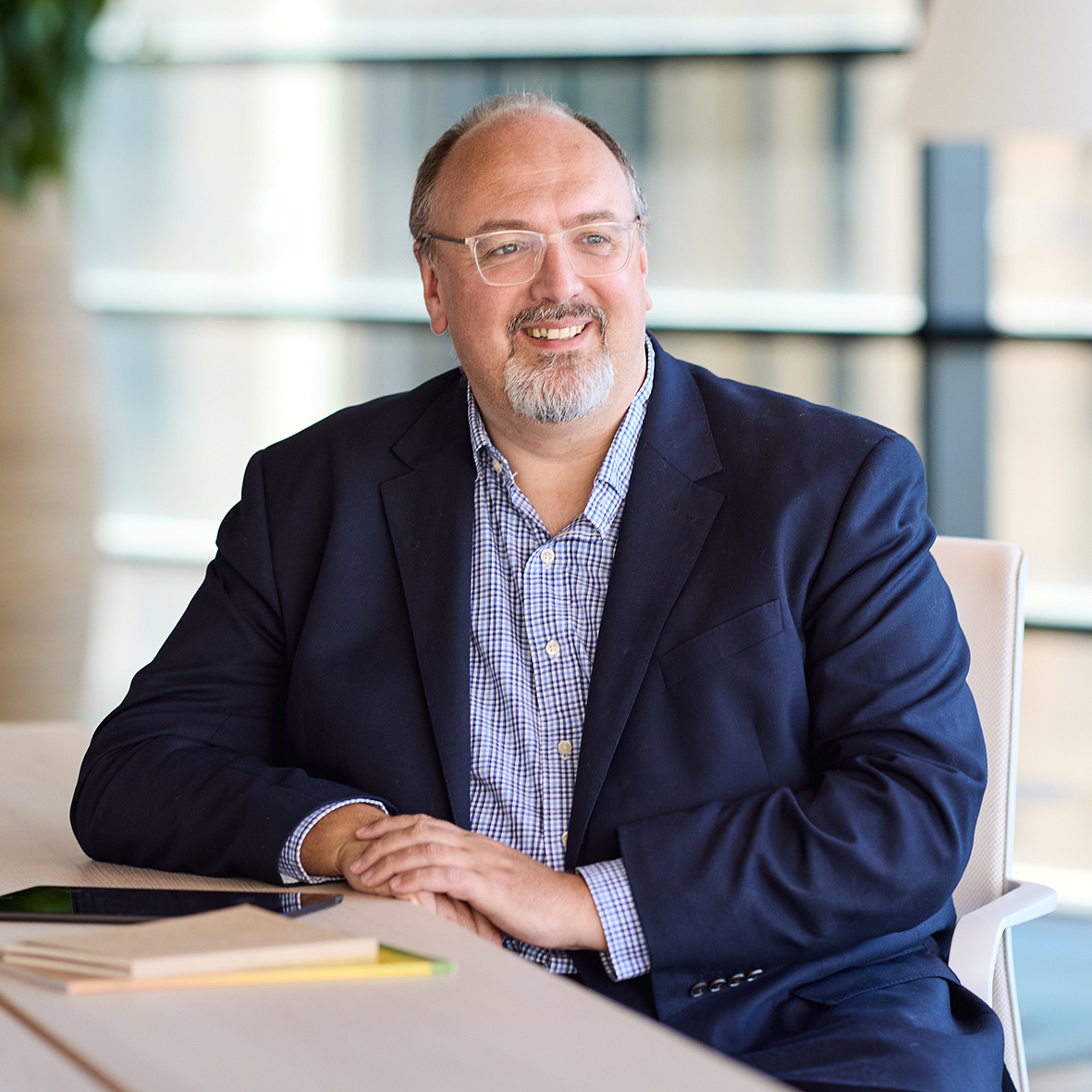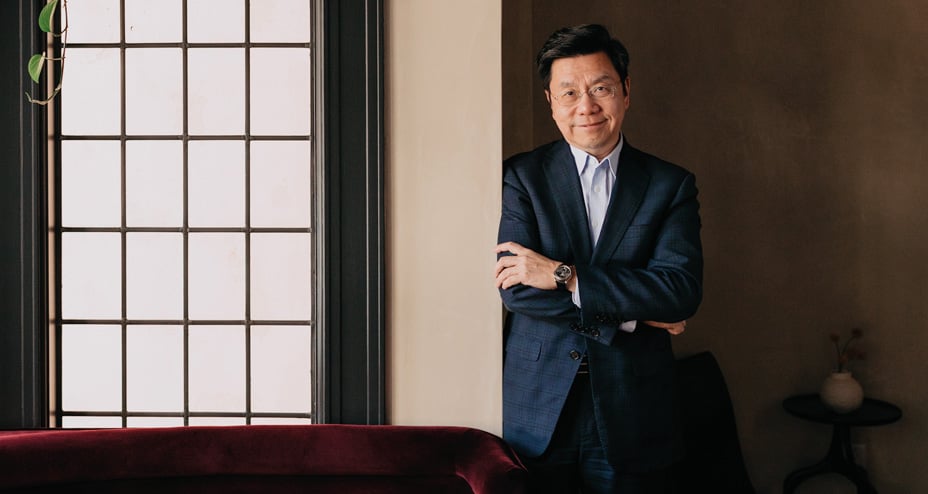
Spencer Adair, manager of Monks, at Dynamic Earth, Edinburgh
Photography by Chris Close
Please remember that the value of an investment can fall and you may not get back the amount invested.
This article originally featured in Baillie Gifford’s Autumn 2021 issue of Trust magazine.
‘If it bleeds, it leads,’ or so the old newspaper adage goes. Editors put bad news on their front pages because they know it sells.
Yet headlines don’t always tell the full story. Dig deeper into a tale and you’ll find a richer, more nuanced perspective.
Digging behind the headlines is an important part of our role at Monks. We love to find companies that have the potential for structural growth but are being plagued by bad news. This may come and go, but if a company has a big competitive advantage then it will be durable, allowing the firm to grow again long after this morning’s newspapers have become tonight’s fish and chip wrappers.
We call these companies cyclical growth stocks. They tend to take three steps forward and one step back.
If you study the companies that generated most of the stock market value over the past 50 years, then they fall into three broad categories. After a ‘rapid’ growth phase, many mature into either ‘stalwarts’ or ‘cyclicals’.
Stalwarts are the ‘get rich slowly’ stocks. They’re the compounding machines – with each year’s growth building on the previous year’s – that we expect will increase their value at more than 10 per cent each year. They’re the Estée Lauders and the Pernod Ricards that can be left alone to become a little more valuable each year.
Conversely, cyclicals require a bit more leg work to find the full story. These are stocks that face short-term challenges but – if picked wisely – have the potential to grow over the long term.
For Monks’ most rapidly growing companies, it’s our analysis of what’s driving demand that matters most. For cyclicals, the supply cycle is crucial. We look for companies in industries facing a bottleneck, where there isn’t enough supply to meet demand.
If the economy picks up and there’s a rapid increase in demand, then all of a sudden a resource that was previously abundant becomes scarce. Competitors can’t cope, there’s a scramble, and prices suddenly shoot up. While stalwarts’ strong foundations mean they continue growing steadily, cyclicals deliver a double whammy: their foundations improve and their share price jumps as stock markets reassess the quality of their business.
Ryanair offers an example. Before the pandemic, the vast majority of Europe’s 90 airlines were unprofitable and those making a surplus were only bringing in €1 per passenger per flight.
The exception was Ryanair. Passengers know it as a low-cost airline, but its shareholders realise it’s the carrier’s low cost-base that matters. The company was making a profit of €9 per passenger per flight before the pandemic, thanks to its focus on fuel-efficient aircraft and minimising costs.
While other airlines rely on business travel that may or may not rebound post-Covid, Ryanair focuses on leisure travel. Even if younger consumers give up short-haul flights to cut their carbon footprints, we believe northern European families will cut carbon from other parts of their lives before giving up their two weeks in the southern European sun.
Another factor is management. While Ryanair chief executive Michael O’Leary is best known for generating lots of free publicity – some good headlines, some not so good – he’s also a fantastic steward of shareholders’ capital. We want managers who focus on long-term shareholder value, rather than short-term share price fluctuations.
They zig, while others zag. They invest capital when others retrench, preparing to grow when demand returns. In December, Ryanair increased its order for Boeing’s 737-Max model from 135 to 210, securing the aircraft far below their list price.
A quieter, more fuel-efficient fleet will cement Ryanair’s competitive advantage for a decade to come

It’s a brave move. The aeroplanes might be ready before the economic recovery from the pandemic begins. Yet a quieter, more fuel-efficient fleet will cement Ryanair’s competitive advantage for a decade to come.
Controversy goes hand in hand with this style of investing. Just as airlines stoke debate with their carbon emissions, so too do the diversified mining and metals groups. Miners may go out of favour when the global economy slumps, but canny operators will still invest in their businesses, ready for demand returning.
In the past, these stocks were focused on coal, oil and gas, making it easy to write headlines saying these are yesterday’s, and not tomorrow’s, companies. Yet these assets – or should that be liabilities? – have been disposed of. BHP and Rio Tinto supply the iron ore needed to make the steel that can be turned into wind turbines, and the copper and aluminium required to build low-carbon infrastructure to electrify transport, heating and cooling.
They’re the picks and shovels. You need these materials to build a low-carbon economy.
This is difficult stuff. It took us time to digest Rio Tinto’s destruction of two ancient rock shelters in the Juukan Gorge in Western Australia, and we have voted against its management. Lots of rational people don’t want to touch these businesses, but you have to embrace the uncertainty. If it was all perfectly straightforward, it would be reflected in share prices.
If your priority was having an easy life as a fund manager then you wouldn’t own these cyclical companies. But if you want to make long-term returns for your shareholders then it’s worth diving beneath the headlines to find the stocks preparing to make a comeback.
If you would like to register to receive Trust magazine please visit bailliegifford.com/trust
Investments with exposure to overseas securities can be affected by changing stock market conditions and currency rates. The trust has a significant exposure to private companies. The trust’s risk could be increased as these assets may be more difficult to buy or sell, so changes in their prices may be greater.
The views expressed in this article should not be considered as advice or a recommendation to buy, sell or hold a particular investment. The article contains information and opinion on investments that does not constitute independent investment research, and is therefore not subject to the protections afforded to independent research.
Some of the views expressed are not necessarily those of Baillie Gifford. Investment markets and conditions can change rapidly, therefore the views expressed should not be taken as statements of fact nor should reliance be placed on them when making investment decisions.
Baillie Gifford & Co Limited is wholly owned by Baillie Gifford & Co. Both companies are authorised and regulated by the Financial Conduct Authority and are based at: Calton Square, 1 Greenside Row, Edinburgh EH1 3AN.
The investment trusts managed by Baillie Gifford & Co Limited are listed on the London Stock Exchange and are not authorised or regulated by the Financial Conduct Authority.
A Key Information Document is available by visiting bailliegifford.com





